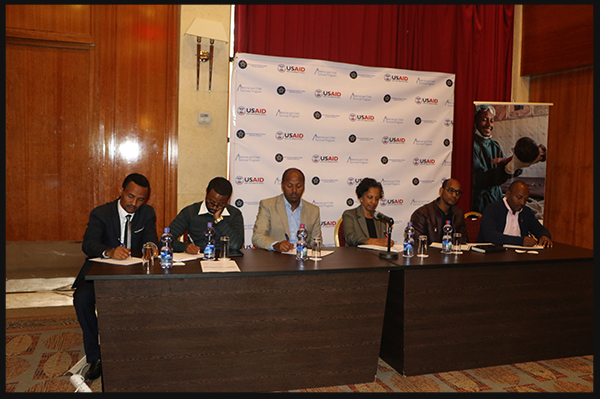MCSP CBNC-NEGA shares results and key lessons

The Maternal and Child Survival Program (MCSP) Community Based Newborn Care (CBNC) Newborns in Ethiopia Gaining Attention (MCSP CBNC-NEGA) shared on December 12, 2017 its program results and key learnings at a half-day dissemination event held at the Hilton, Addis Ababa. The three-year USAID funded program implemented by Save the Children started in October, 2014 and will officially close out in January 2018 after successfully covering 135 Woredas in 12 zones across Amhara, Oromia, SNNP and Tigray National Regional States.
On the occasion, community leaders, health officers and health extension workers gave their testimonials of how MCSP CBNC-NEGA, through its active engagement with local health workers, community leaders and volunteers, has helped to improve maternal and newborn health practices. Representatives from Estie Woreda Health Office and the local Estie Health Center said the program was awakening in that it showed the great potential of the Health Center to grow into a quality health facility. A few months after being introduced to MCSP CBNC-NEGA and its programmatic aspects, they said Estie Health Center was able to raise its quality of services by astounding 75%. Community representatives from Ketele Kebele of Bonke Woreda in SNNP’s Gamo Gofa zone on their part said because of the active community mobilization by the MSCP CBNC-NEGA strengthened command post, home delivery has become a rarity and their community have improved their maternal and newborn health practices. They also noted that community resources have been utilized to build waiting rooms for mothers coming to health facilities from afar to stay for days for follow-up before delivery where they also receive food and support from community assigned caretakers.
The strengthened Kebele Command Post has members including local religious leaders, health development army leaders, local elders and so on, and these have helped to win community trust and acceptability, eventually leading to improved heath seeking behavior. MCSP CBNC-NEGA trained 2,447 health workers and 7,069 health extension workers to provide Community Based Newborn Care (CBNC) service at community level. Nearly 100% of the targeted health posts initiated CBNC services. Closely collaborating with government partners, local non-governmental organizations and community groups, the program has effectively used existing structures to improve maternal and newborn health practices and increase the provision of high-impact healthcare services. It has particularly worked to strengthen the Kebele Command Post, the grassroots community structure, and effectively utilized it to mobilize communities into improving their demand for quality maternal and newborn health services.
 Ethiopia
Ethiopia